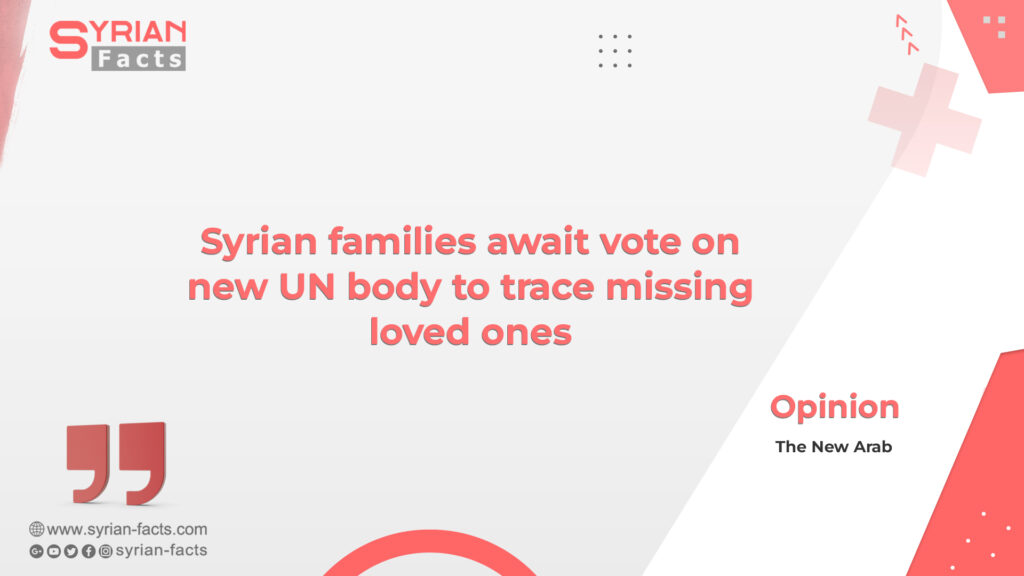The UN General Assembly is due to vote on Thursday on the creation of a first-of-its-kind institution that will work to account for the fates of the estimated 102,000 people missing or forcibly disappeared during Syria’s civil war.
The vote marks the culmination of years of lobbying and grassroots activism from various groups started by the family members of the missing and the forcibly disappeared.
In 2021, the groups joined together and launched the Truth and Justice Charter, which called for the creation of the same mechanism which the UN is vote on in order to uncover the fate of Syria’s missing
According to the UN, the proposed body will have two main functions: firstly, to consolidate existing information and gather new material, and secondly, to facilitate support for the families of missing people and detainees, as well as for survivors of detention.
UN officials have made it clear that if the body is approved, it will serve as a humanitarian device and not a legal one. However, families are free to use evidence uncovered by the institution to pursue legal action against any guilty parties.
.
A ‘heavy burden’
The family groups seek to represent all of Syria’s missing, and the Truth and Justice Charter includes groups such as the Coalition of Families of Persons Kidnapped by ISIS-Daesh.
However, Syrian rights groups say that the vast majority of enforced disappearances during the war were by the Assad regime. According to the Syrian Network for Human Rights (SNHR), based on reports by families, Assad regime forces are responsible for 85% of disappearances.
The question, families say, has been one of accountability – or the lack of it.
Crimes committed by the Assad regime have been well-documented, and thus understood by international authorities, for twelve years.
But, other than sanctions, Damascus has faced no meaningful accountability from the international community. Meanwhile, the families of the disappeared have been left without any assistance since the outbreak of the war in 2011.
.
The chance now is for the UN to help “shoulder the heavy burden” that the families have been left with, Yasmen Almashan, co-founder of the Caesar Families Association, told the Financial Times.
Her organisation is named after the Syrian whistleblower ‘Caesar’, who in 2013 smuggled photographic evidence documenting the torturing to death of at least 11,000 Syrians detained by Assad. With no other option, Yasmen had to pour through thousands of grisly photos to identify the mutilated body of her brother Oqba’s body.
It is believed by activists and diplomats that the organisation should gather enough votes at the UN for approval. Countries such as Mexico, Iraq and Kuwait, with their own historical and current problems with forced disappearances, are expected to provide Assad.
However, the vote comes at a time when Assad has cemented his alliances at the UN, with the UAE and Saudi Arabia leading his successful regional rehabilitation of the despot, while attempting less successfully to normalise him globally.





Be the first to write a comment.